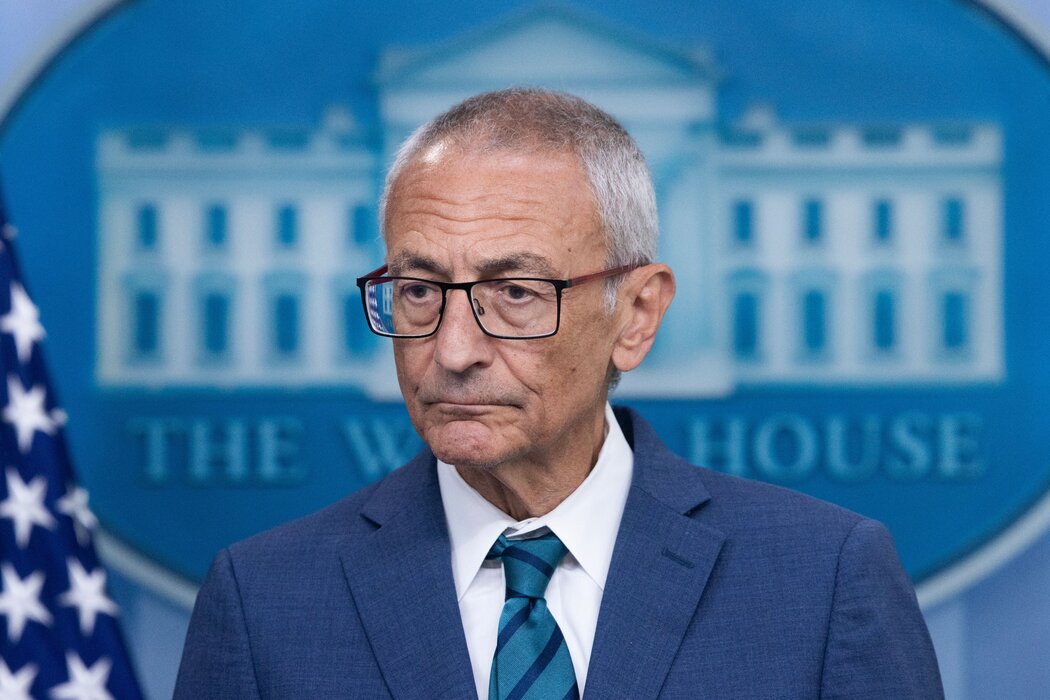拜登总统的气候问题最高外交官约翰·波德斯塔周二前往北京,他预计将敦促中国领导人制定更雄心勃勃的计划,减少导致气候变化的温室气体排放。这次为期三天的访问被认为是拜登政府在11月大选前向中国施压,要求该国在全球变暖问题上采取更积极行动的最后机会之一。波德斯塔计划与中国气候变化事务特使刘振民以及负责煤炭开发和可再生能源生产的部长们举行会谈。他预计还将与解振华会面,解振华是退休的高级气候特使,目前仍在从事外交工作。气温专家希望此次访问将有助于将气候问题纳入11月二十国集团峰会期间拜登和中国国家主席习近平会晤的议程。此外,本次访问也为即将到来的联合国气候谈判做准备,该谈判将在11月在巴库举行。
Original Title: Biden’s Top Climate Diplomat, John Podesta, Travels to China
Summary: John Podesta, President Biden’s top climate diplomat, traveled to Beijing on Tuesday with plans to press Chinese leaders to set more ambitious targets for reducing greenhouse gas emissions that are driving climate change. The three-day visit is widely seen as one of the last chances for the Biden administration to apply pressure on China to act more aggressively on global warming before the November election. “The U.S. and China are at a stalemate on climate cooperation,” said Li Shuo, director of the China Climate Hub at the Asia Society Policy Institute. “We don’t have much time to really turn things around.” Podesta is expected to meet with Xie Zhenhua, China’s special envoy for climate change, and ministers responsible for coal development and renewable energy production. He is also expected to meet with Xie Zhenhua, the retired senior climate envoy who continues to engage in diplomacy. Climate experts said they hope the trip will help put climate issues on the agenda if Biden and Chinese President Xi Jinping meet at the Group of 20 summit in November. The trip is Podesta’s first to China since he took over for John Kerry, who stepped down as the United States’ chief climate negotiator earlier this year. The Group of 20 meeting will be held on Nov. 18 and 19 in Brazil, about two weeks after the United States presidential election. That same week, climate diplomats will gather in Baku, Azerbaijan, for the annual United Nations-led negotiations on global warming. The Baku meeting will address two main issues: finance and new climate goals. The U.S.-China relationship could be critical to both. By early next year, the 195 countries that signed the 2015 Paris Agreement must announce new climate goals, spelling out how much their countries will cut emissions by 2035. China is the world’s largest emitter of greenhouse gases, accounting for nearly one-third of global emissions. China has been responsible for about 90 percent of the growth in climate pollution since the Paris agreement was signed. That means China’s next target will go a long way toward determining whether the planet can stay within a relatively safe level of warming or whether the global average temperature will exceed the 1.5 degrees Celsius limit agreed upon in the Paris Agreement. The Earth’s average temperature has already risen 1.2 degrees Celsius compared to pre-industrial times. As part of the Paris Agreement, China pledged that its emissions would peak by 2030 and then eventually decline. China’s emissions may already have peaked. A key question going forward is how long China’s emissions should be allowed to remain at the peak before they decline. Another question is how much they will be reduced. “China will meet its initial Paris target ahead of schedule,” said Joanna Lewis, a China expert at Georgetown University. So, she said, “it is very important for China to showcase a more ambitious set of targets this time around.” The Asia Society, a nonprofit, has found that China must reduce emissions across its entire economy by at least 30 percent below current levels by 2035 to help keep warming within 1.5 degrees Celsius. Republicans have criticized the Biden administration’s efforts to work with China. Rep. Michael McCaul, a Texas Republican and the chairman of the House Foreign Affairs Committee, said he was skeptical about whether Podesta’s visit would yield any results. But he also said he believes China must act. “The Biden-Harris administration should not cede our interests simply to get Xi to stick to agreements he already signed,” McCaul said in an emailed statement, adding that, “Xi’s concern is for himself and his own power, not the rest of the world or our climate.” Other items on the agenda for the Beijing meeting are likely to include the transition from coal energy and strengthening China’s plans to reduce potent non-carbon greenhouse gases like methane and nitrous oxide. A major task for the upcoming United Nations climate talks is to agree on new financing goals to help poorer countries cope with climate change. The new goals will replace the current pledge by wealthy nations to provide $100 billion a year in climate finance to developing countries. The United States wants to ensure that any agreement includes countries like China, which are considered “developing” by the United Nations, as contributors.
Original article: https://cn.nytimes.com/world/20240904/podesta-china-climate-change/zh-hant/?utm_source=RSS

